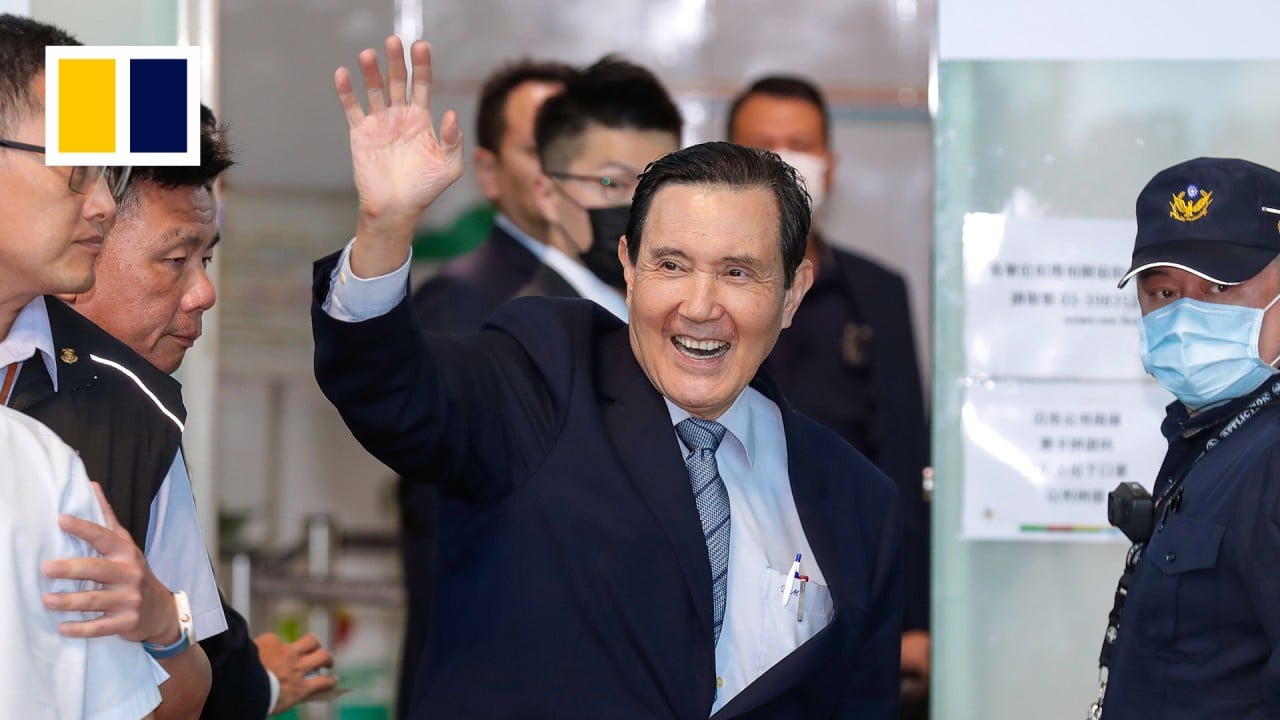
Taiwan’s former leader Ma Ying-jeou rejects Japan’s claims to Diaoyu Islands during mainland China trip
- Taiwanese ex-president denies disputed Diaoyus are Japanese territory after being shown ancient manuscripts at mainland museum, Xinhua says
- Taipei also views the island chain as part of its territory
During a Saturday visit to a museum in the ancient imperial city of Xian in mainland China, Ma was shown ancient manuscripts that he said proved that the islands “do not belong to Ryukyu” – the name of a kingdom that was a Chinese tributary state for more than 500 years until it was annexed by Japan in 1879.
Okinawa or Ryukyu? The prefecture on the front line of China-Japan ties
Liu Chengyong, director of the China National Archives of Publications and Culture, said Ma viewed ancient texts “indicating the Diaoyu Islands are part of Chinese territory”, official news agency Xinhua reported on Sunday.
“This is something those of us studying the Diaoyu Islands must read,” Ma said of the Ming dynasty (1368-1644) manuscript, according to Xinhua.
Ma added that historical records about the Diaoyus should be publicised, Xinhua said.
The document, penned by a Chinese envoy after a mission to confer titles upon the king of Ryukyu, states that the emissary passed the Diaoyus before reaching Ryukyu, which Liu cited as evidence that the islands fell outside the ancient kingdom.
Tensions over the uninhabited islands, a potential source of oil and natural gas, have intensified over the past year.
Beijing published an official map last summer that emphasised its territorial claim to the Diaoyus – a move that angered Japan, which rejected the map.
Taipei also views the Diaoyu Islands as part of its territory.
Ma did not specify who he thought the Diaoyus belonged to during his Xian trip. When he visited the East China Sea as the Taiwanese leader in 2012, he said the islands “have long been an inherent part of the territory of the Republic of China”, using Taiwan’s official name for itself.
He will travel to Beijing on Sunday and is expected to meet President Xi Jinping next week, though the meeting has yet to be confirmed. It would be their first since a meeting in Singapore in 2015, when Ma was the self-ruled island’s president.
Ex-Taiwan leader Ma Ying-jeou urges island’s young to remember Chinese roots
Beijing sees Taiwan as part of its territory to be united with the mainland, by force if necessary. Most countries, including the US, do not recognise Taiwan as independent state, but Washington opposes any attempt to take the island by force and remains committed to supplying it with weapons.
Lai, a member of the independence-leaning Democratic Progressive Party, will be inaugurated on May 20.


